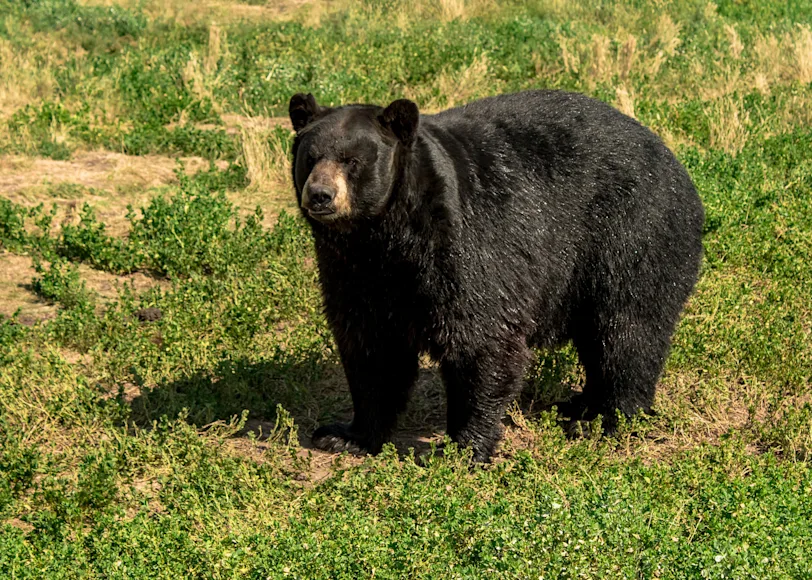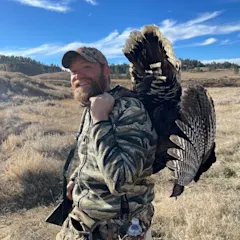Florida’s bear populations are on the rise, and a growing number of people in the Sunshine State are calling for a new black bear hunting season. In mid-December, at the urging of local sportsmen and women, the Florida Fish & Wildlife Conservation Commission (FWC) said its biologists are looking into the feasibility of a Florida black bear hunt and plan to unveil an official proposal by May of this year.
When presenting a recent update to its 2019 black bear management plan, FWC said the Florida black bear’s range has expanded in each of the state’s seven bear management units (BMUs). And populations in four of those units—according to a summary of the update compiled by the Florida Chapter of Backcounrty Hunters and Anglers—are at levels 2.5 to 5 times higher than minimum objectives.
“Florida currently has more than 17,000 square miles of suitable bear habitat, of which 46% is protected,” the local BHA chapter wrote in a Jan. 12 blog post about bear management in the state, adding that “state-wide bear-related calls are at an all time high, with a 42% increase from 2016.”
If the proposed hunt is implemented, it’ll be the first time Floridians have been allowed to pursue black bears since 2015. That year, FWC held its first bear hunt in several decades with a quota of just 300 bears. The season was set for 8 weeks but abruptly shut down at the end of day 1 after hunters harvested a combined 295 bears. The higher-than-expected day-one harvest rates created a public relations fiasco with anti-hunting groups subsequently suing FWC and blocking future hunts.
Pro-hunt groups argue that halting the bear hunt after 2015 only accelerated the rate of human-bear conflict in the state. They say FWC should manage black bears via highly-regulated, limited-quota hunts to reduce vehicle collisions, raise money for conflict prevention, and provide Florida hunters with an opportunity to harvest a sustainable, renewable resource. "Bears that are hit by cars and left to rot or nuisance bears that are euthanized are wasted," Florida BHA wrote in its blog post, "whereas harvested bears will go to feeding fellow Floridians."
Florida is home to a distinct black bear subspecies. Officially named the Florida black bear, it used to roam the entire state with populations that extended into Georgia and Alabama. It's believed that Florida was home more than 11,000 black bears at the time of European contact, but their numbers fell off a cliff thanks to unregulated market and subsistence hunting common around the turn of the century. In the 1970s, when bears were at an all-time low around 500 individuals, the Florida black bear was given state-level endangered species protections. That status was lifted in 2011, and today the species is considered one of the Florida's greatest conservation success stories with a statewide population exceeding 4,000 bears.
But the recovery story hasn't convinced some local animal welfare advocates who seem to oppose bear hunting under any circumstances. Speaking during FWC's mid-December meeting, the president of a central Florida political action group called the possibility of a black bear hunt a "gut punch" and claimed that bear numbers still haven't rebounded from the fleeting limited-quota hunt the state held a decade ago. The same group lobbied citizens to vote 'no' on Florida's recent Right to Hunt and Fish amendment to the state constitution.
Florida BHA says a bear hunt would generate revenue that could benefit bears and bear habitat. "A limited and highly regulated localized bear hunt quota could help reduce bear densities in areas where bear-human conflicts have become a problem," BHA adds, "and leave low density subpopulations alone to continue their recovery."
Read Next: A New House Bill Would Erase Presidential Public Land Powers Enshrined by Theodore Roosevelt
If Sunshine State officials move forward with the hunt, they'll become the second southeastern state to do so in recent years. Last month, Louisiana wrapped up its first black bear hunt in more than 30 years. In a press release, the Louisiana Department of Wildlife & Fisheries called the return of bear hunting in the Bayou State a success and said hunters harvested a total of 10 black bears, including one bore weighing nearly 700 pounds.


